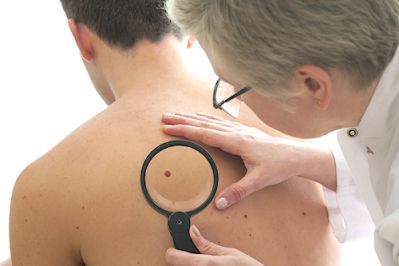
From this week patients diagnosed with complex and advanced cases of the skin cancer melanoma will be able to access a team of melanoma experts at new facilities at the Harry Perkins Institute of Medical Research.
The new WA Kirkbride Melanoma Advisory Service (WAKMAS) combines the WA Melanoma Advisory Service (WAMAS), which has been operating at St John of God Hospital, and the Kirkbride Melanoma Centre to create the latest in both patient care and melanoma research.
The new melanoma facility will be instrumental in applying new treatment recommendations as they become available. A team of melanoma specialists will review difficult cases giving patients access to the latest treatments and informing the latest cancer research.
WAKMAS Chair and Clinical Director, Mr Mark Hanikeri, says patients with difficult diagnoses will be referred to the clinic by GPs, skin clinics and dermatologists.
“These new facilities will enable more patients to access the comprehensive team of specialists including pathologists who specialise in skin pathology, medical and radiation oncologists, plastic surgeons and dermatologists.”
Director of the Harry Perkins Institute of Medical Research and WAKMAS Supervisory Committee Member, Professor Peter Leedman, says that by establishing the new state-of-the-art facilities in the Perkins, which is adjacent to the major teaching hospital QEII, patient care and research opportunities will be optimised.
“Medical research has already delivered substantial improvements in the treatment of melanoma and patient survival rates have improved. This new facility will further enhance melanoma research, particularly through providing greater access to disease data.”
The Kirkbride name has been included in the title of the new centre in honour of the substantial commitment to research achieved by the Kirkbride Melanoma Centre established by the Kirkbride family whose 27 year old son, Scott, died of Melanoma in 2004.
Fast Facts:
- Melanoma is the third most common cancer in Australian men, after prostate and bowel cancer, and it accounted for 12% of all new cancers diagnosed in 2017 (estimated).
- Melanoma is the third most common cancer in Australian women, after breast and bowel cancer, and it accounted for 9% of all new cancers diagnosed in 2017 (estimated).
- Almost 14,000 Australians are expected to be diagnosed with melanoma in 2017.
- Melanoma represents 2% of all skin cancers, but causes 75% of skin cancer deaths.
Source: Australian Institute of Health and Welfare 2017
